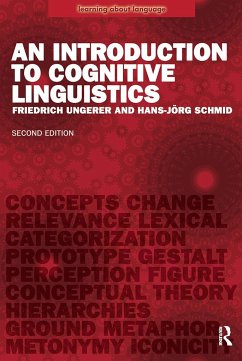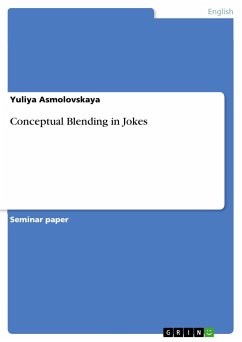An updated edition of the original classic on cognitive linguistics that brings together both cognitive semantics and syntax. Updated and extended comprehensive overview of Cognitive Linguistics, including major recent developments in the field. Incorporates additional clarification of basic notions. Contains additional diagrams and illustrations to make the theoretical argument more tangible to the reader. Includes extended exercises and updated suggestions for further reading Previous edition sold over 8,500 copies.
Learning About Language is an exciting and ambitious series of introductions to fundamental topics in language, linguistics and related areas. The books are designed for students of linguistics and those who are studying language as part of a wider course.
Cognitive Linguistics explores the idea that language reflects our experience of the world. It shows that our ability to use language is closely related to other cognitive abilities such as categorization, perception, memory and attention allocation. Concepts and mental images expressed and evoked by linguistic means are linked by conceptual metaphors and metonymies and merged into more comprehensive cognitive and cultural models, frames or scenarios. It is only against this background that human communication makes sense. After 25 years of intensive research, cognitive-linguistic thinking now holds a firm place both in the wider linguistic and the cognitive-science communities.
An Introduction to Cognitive Linguistics carefully explains the central concepts of categorizaÂ-tion, of prototype and gestalt perception, of basic level and conceptual hierarchies, of figure and ground, and of metaphor and metonymy, for which an innovative description is provided. It also brings together issues such as iconicity, lexical change, grammaticalization and language teaching that have profited considerably from being put on a cognitive basis.
The second edition of this popular introduction provides a comprehensive and accessible up-to-date overview of Cognitive Linguistics:
Clarifies the basic notions supported by new evidence and examples for their application in language learning
Discusses major recent developments in the field: the increasing attention paid to metonymies, Construction Grammar, Conceptual Blending and its role in online-processing.
Explores links with neighbouring fields like Relevance Theory
Uses many diagrams and illustrations to make the theoretical argument more tangible
Includes extended exercises
Provides substantial updated suggestions for further reading.
Learning About Language is an exciting and ambitious series of introductions to fundamental topics in language, linguistics and related areas. The books are designed for students of linguistics and those who are studying language as part of a wider course.
Cognitive Linguistics explores the idea that language reflects our experience of the world. It shows that our ability to use language is closely related to other cognitive abilities such as categorization, perception, memory and attention allocation. Concepts and mental images expressed and evoked by linguistic means are linked by conceptual metaphors and metonymies and merged into more comprehensive cognitive and cultural models, frames or scenarios. It is only against this background that human communication makes sense. After 25 years of intensive research, cognitive-linguistic thinking now holds a firm place both in the wider linguistic and the cognitive-science communities.
An Introduction to Cognitive Linguistics carefully explains the central concepts of categorizaÂ-tion, of prototype and gestalt perception, of basic level and conceptual hierarchies, of figure and ground, and of metaphor and metonymy, for which an innovative description is provided. It also brings together issues such as iconicity, lexical change, grammaticalization and language teaching that have profited considerably from being put on a cognitive basis.
The second edition of this popular introduction provides a comprehensive and accessible up-to-date overview of Cognitive Linguistics:
Clarifies the basic notions supported by new evidence and examples for their application in language learning
Discusses major recent developments in the field: the increasing attention paid to metonymies, Construction Grammar, Conceptual Blending and its role in online-processing.
Explores links with neighbouring fields like Relevance Theory
Uses many diagrams and illustrations to make the theoretical argument more tangible
Includes extended exercises
Provides substantial updated suggestions for further reading.









